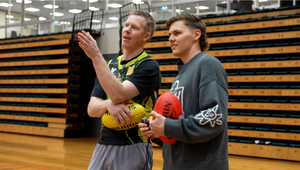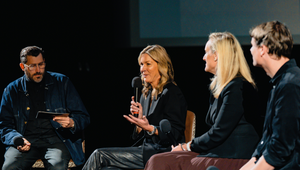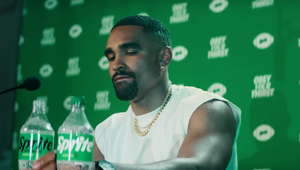
WPP AUNZ's New Research Report Reveals Australians’ Secrets and Lies

Australians regularly lie about money, family, finances, their job and happiness, new research shows. They also keep big secrets from their partners, family and friends.
Secrets & Lies, Uncovering the Underbelly of Australia, analyses the difference between what Australians say and what they think or do. The public values reported. The private truths hidden. Commissioned by leading communications and marketing organisation, WPP AUNZ, it offers valuable insight into personal behaviour.
“As a nation we often view ourselves as honest, decent, kind and generous. Not prone to hyperbole and immune to hot air,” WPP AUNZ chief strategy officer, Rose Herceg, says. “We’ve marketed ourselves to the world as straight-up, straight-talking and fair dinkum for decades.
“But our research shows that Australians lie about all sorts of things and some of those lies are whoppers. We commissioned this research and partnered with a leading anthropologist because we wanted to understand the reasons behind our desires to keep secrets and tell lies. We wanted to help our clients better understand the people they’re trying to connect with.”
Based on 2500 interviews across Australia, the report has unearthed four key themes: 50 Shades of Authentic; Conditional Kindness; Confident Much?; and Party for One.

50 Shades of Authentic
While 81% value the notion of living an authentic life, 49% admit to misrepresenting themselves, 52% have lied at work and 63% have made up an excuse to cancel a social arrangement. Perhaps surprisingly, 27% have lied about their whereabouts to family and friends, 29% admit to doing something illegal and one third of Australians will stay in an unhappy relationship.
Authenticity carries less value for 18-24 year olds than other age groups and these younger Australians also show greater consideration of how they’re perceived by others.
There are also clear difference between men and women. While women are more likely to share their real selves with children, parents and friends than are men; men are more likely than women to show their real selves to colleagues, neighbours or even their barista.
Conditional Kindness
Australians hold kindness in high esteem, telling our researchers it’s their most important value. Yet almost half have deliberately gone out of their way to say something cruel that they absolutely knew would hurt someone’s feelings. And 40% say they try to get even rather than forgiving and forgetting when they’ve been wronged. More than half (54%) admit to being jealous of others.
Australians also keep secrets about their negative behaviour, with one in four admitting to hurting someone physically or emotionally and one-third saying they’ve taken advantage of someone.
Confident Much?
The research reveals that our under 35s are suffering from a crisis of confidence – 66% regularly give up because they think they have too little ability; 63% say it’s hard for them to get on with their job without huge amounts of continuous encouragement; and 59% feel resentment if they don’t get their own way.
Party for One
We say those closest to us are most important yet 38% of Australian would be willing to sacrifice 20% of their times with family for a 20% increase in financial gain; one-third would relocate away from family and friends for a better-paying job; and 63% have made up an excuse to cancel a social arrangement.
WPP AUNZ has partnered with leading anthropologist, Michael Henderson, to better understand the research and put these findings into the context of marketing and communications.
“Keeping secrets and telling lies is a fascinating aspect of human behaviour,” Henderson says. “It’s easy to jump to the conclusion that secrets and lies are bad, that they’re unethical and should be avoided at all times. But our intent for keeping secrets or telling lies relates to basic human desires – protection, privacy and power.
“We keep secrets and tell lies to protect ourselves or prevent knowledge from falling into the hands of others. We do it to maintain a sense of privacy in a social setting or to maintain power.”
WPP AUNZ CEO, Mike Connaghan says organisations face ever-increasing complexity that makes it difficult to win the attention of distracted and fragmented audiences.
“Product, price, place and promotion have historically been the foundation of marketing,” he says. “Secrets & Lies shows that our behaviours are driven by three new Ps – protection, privacy and power – that should also be considered by marketers. This has the potential to change the way organisations think about and communicate with audiences.
“This ambitious study paints an illuminating and valuable picture of our nation. The results are challenging, insightful and powerful,” he said.
As a result of the research, WPP AUNZ challenges some longstanding marketing truths and created three new “plays” to help businesses and organisations better connect with the often, contradictory behaviours of their audiences. These will be presented and discussed as part of a national roadshow to WPP AUNZ clients and employees across November and December.









